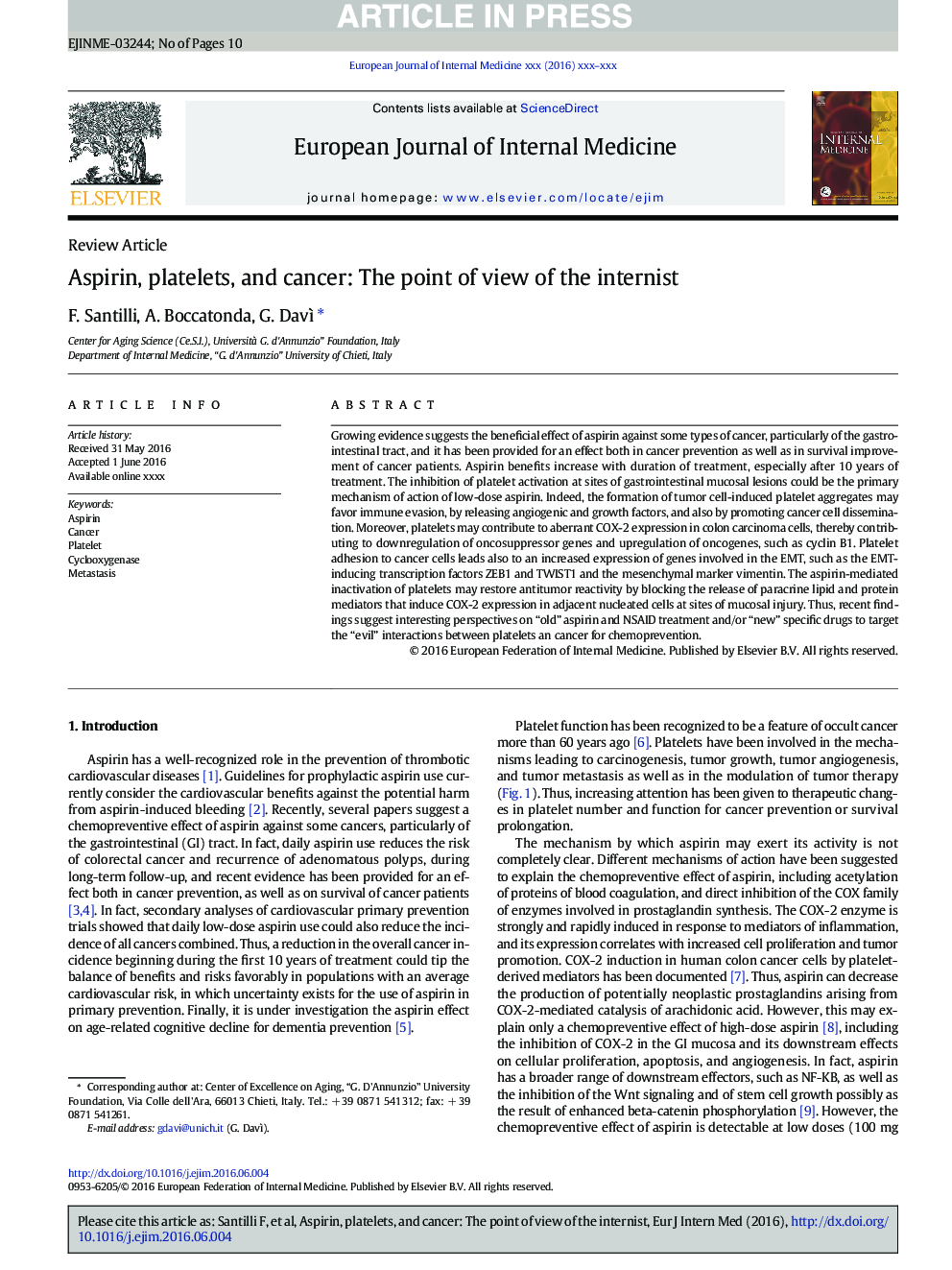| کد مقاله | کد نشریه | سال انتشار | مقاله انگلیسی | نسخه تمام متن |
|---|---|---|---|---|
| 5679043 | 1596532 | 2016 | 10 صفحه PDF | دانلود رایگان |
عنوان انگلیسی مقاله ISI
Aspirin, platelets, and cancer: The point of view of the internist
ترجمه فارسی عنوان
آسپرین، پلاکتها و سرطان: نقطه نظر متخصص داخلی
دانلود مقاله + سفارش ترجمه
دانلود مقاله ISI انگلیسی
رایگان برای ایرانیان
کلمات کلیدی
آسپرین سرطان، پلاکت، سیکلوکوکسیژناز، متاستاز،
موضوعات مرتبط
علوم پزشکی و سلامت
پزشکی و دندانپزشکی
پزشکی و دندانپزشکی (عمومی)
چکیده انگلیسی
Growing evidence suggests the beneficial effect of aspirin against some types of cancer, particularly of the gastrointestinal tract, and it has been provided for an effect both in cancer prevention as well as in survival improvement of cancer patients. Aspirin benefits increase with duration of treatment, especially after 10Â years of treatment. The inhibition of platelet activation at sites of gastrointestinal mucosal lesions could be the primary mechanism of action of low-dose aspirin. Indeed, the formation of tumor cell-induced platelet aggregates may favor immune evasion, by releasing angiogenic and growth factors, and also by promoting cancer cell dissemination. Moreover, platelets may contribute to aberrant COX-2 expression in colon carcinoma cells, thereby contributing to downregulation of oncosuppressor genes and upregulation of oncogenes, such as cyclin B1. Platelet adhesion to cancer cells leads also to an increased expression of genes involved in the EMT, such as the EMT-inducing transcription factors ZEB1 and TWIST1 and the mesenchymal marker vimentin. The aspirin-mediated inactivation of platelets may restore antitumor reactivity by blocking the release of paracrine lipid and protein mediators that induce COX-2 expression in adjacent nucleated cells at sites of mucosal injury. Thus, recent findings suggest interesting perspectives on “old” aspirin and NSAID treatment and/or “new” specific drugs to target the “evil” interactions between platelets and cancer for chemoprevention.
ناشر
Database: Elsevier - ScienceDirect (ساینس دایرکت)
Journal: European Journal of Internal Medicine - Volume 34, October 2016, Pages 11-20
Journal: European Journal of Internal Medicine - Volume 34, October 2016, Pages 11-20
نویسندگان
F. Santilli, A. Boccatonda, G. Davì,
